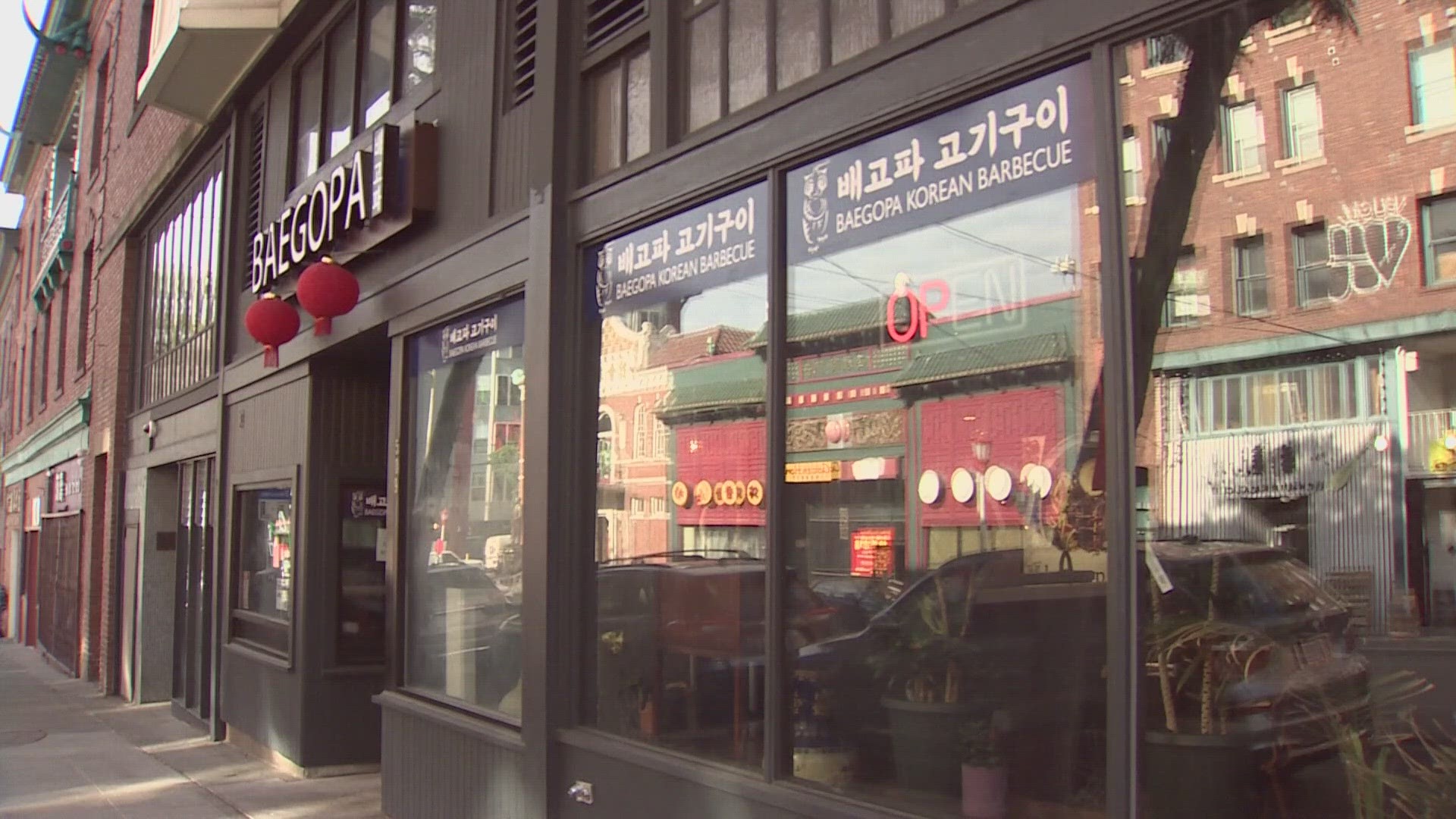SEATTLE — Before All-Star Week, leaders with both MLB and the Mariners said it would be "the most inclusive" All-Star game ever.
Now that it's over, however, small business owners in the neighboring Chinatown-International District said they hardly saw any of the $50 million in revenue expected to have been generated.
"I walked around the whole Chinatown a couple times these last couple days. I kind of just check on everyone, and, I think everyone's business has been affected by this in a negative way surprisingly," said Hai, who preferred not to share his last name. He owns Baegopa, a Korean barbecue restaurant in Chinatown.
"We got kind of everything prepped, more food inventory and more staff for the last couple, maybe four or five days," said Hai.
Ultimately, he said they were over-staffed and even had to throw out expensive products.
He said his restaurant experienced an unusually low turn-out over the busy weekend. Four other businesses in the CID told KING 5 that during All-Star week they had the same experience-- despite their close proximity to the stadiums.
"I feel like we were forgotten in a way," said Tanya Woo, a CID community advocate who is running for Seattle City Council District 2. "Saturday, Sunday, Monday, Tuesday, it was just, no one. It was like a ghost town here."
Despite CID businesses being empty, parking spots were full, according to Hai.
"Because nobody wanted to really pay those high prices near the stadium, so they would park there and then walk over," said Hai.
Instead of spending their dollars there, however, "the locals stayed away, and so did the tourists," according to Woo.
Woo said they followed green arrows that had been placed on sidewalks in the CID, leading people out of the community and toward the All-Star Village. Woo and a group of ten volunteers took matters into their own hands and distributed fliers near the stadiums.
"Wanted to help draw people out of the stadiums and to the CID," said Woo. "So we had a little piece of paper with a QR code on it that had a map of all the small businesses here in the area."
She added, "Going forward I believe that Seattle Sports Commission is going to have a debriefing in the next several months, so we're definitely going to bring this up that we would like to have more of a partnership."
It has been 22 years since the city of Seattle hosted an event of this size. So with other events like the 2026 FIFA World Cup on the horizon, Seattle Sports Commission President Beth Knox said they plan to reflect on this event and discuss future adjustments, as necessary.

